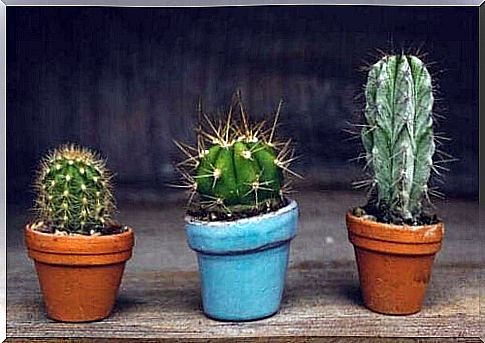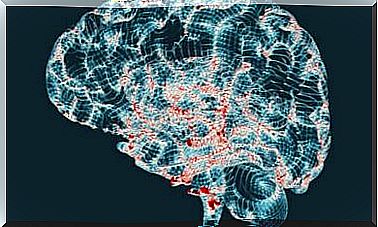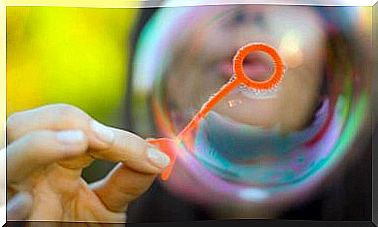Jealousy Among Friends, What’s Behind This?

Jealousy among friends is quite common. Sometimes it’s harmless, the result of emotions that are as human as they are normal. In other cases, jealousy can be toxic. Jealousy can be the sudden trigger for misunderstandings and tensions that can affect your friendship.
As the 17th century poet John Dryden beautifully said, “Jealousy is the jaundice of the soul.” Not only is it toxic to the relationship (romantic or not), but it’s also harmful to the person feeling it.
Nevertheless, from a psychological point of view, it is an understandable and fairly normal process. We’ve all felt it at one time or another.
Knowing that a beloved friend has intimate relationships with other people can create pain and jealousy. This dynamic is common in childhood, adolescence, and young adulthood.
As people grow and mature, they tend to stop thinking of friends as “possessions.” Relationships become healthier and free from jealousy, resentment and blame.
That said, that kind of maturity doesn’t happen automatically as one gets older. As an adult, you have probably dealt with a jealous friend. However, you are not alone. Codependency in relationships is also possible between friends.

Jealousy Among Friends: Characteristics, Causes and Behavior
Molière said that he who is jealous loves more, but who is not, loves better. Jealousy disrupts the concept of affection, appreciation, admiration, passion and friendship. It causes problems and traps everyone involved. Therefore, jealousy among friends involves some unique realities that people don’t talk about much.
We know that jealousy is very harmful to romantic relationships. But it can be just as bad for friendships. It is important to keep in mind that jealousy is not the same as envy.
Jealousy is the uneasy feeling of losing something valuable at the hands of a third party. On the other hand, envy is all about wanting something that someone else has. Let’s take a look at the complex and unique phenomenon of jealousy among friends.
What does jealousy among friends look like?
Jealousy knows no age or gender. You can be jealous at any time and under any circumstances. In theory, mature adults should be able to have jealousy-free friendships, but that’s not always the case. Here are some ways jealousy manifests itself in a friendship:
- You feel restless when your boyfriend or girlfriend spends time with someone else and shares their thoughts and feelings with that person. To a certain extent, you feel that that person is exclusively “your” friend and no one else’s.
- A friend may be jealous of another couple.
- Jealous friends always demand things like favors, time to talk, quick responses to their messages, an overview of what you do every day, and so on.
- The possessive behavior of jealous friends often manifests itself in the form of threats. They say things like, “If you go hang out with your other friend, I won’t talk to you anymore. If you don’t stay with me now, you don’t care about me.”
Elementary school children usually do not have the emotional maturity to deal with these types of emotions. Hearing “if you do, I won’t be your friend anymore” is normal and part of development. However, saying such things as an adult is neither appropriate nor healthy.
Causes of jealous behavior among adults
Professor of Psychology Peter DeScioli (English link) of the University of Pennsylvania conducted a study on how people interact on social media. He wanted to know how we build our relationships, how we form alliances and why conflicts, differences and jealousy occur.
Evolutionary psychologists have studied jealousy for years. It has to do with the need for possessions, to keep the people in our lives that guarantee our survival and well-being.
In a study by Dr. Jeffrey G. Parker at Sacred Heart University in Connecticut on teenage jealousy, researchers discovered something interesting. Jealous behavior concealed psychological problems and a degree of marginality. A child with a difficult family life often sees his friends as the only source of support.
The same thing happens in adults. If your spouse and family don’t provide the structure and security you need, you can cling to a few close friends as a lifeline.

What should I do if I have a jealous boyfriend?
Jealousy among friends can be problematic, especially if it manifests itself as possessiveness and hypervigilance. The best thing to do if you find yourself on the receiving end of this behavior is to:
- Explain to your friend that his or her behavior is inappropriate and unacceptable.
- There is no room for jealousy in any relationship. Its presence is not a measure of how much love or affection you have for someone. Jealousy is harmful and it is important to set boundaries as soon as possible.
- Try to understand what is causing your friend’s behavior. Is it because of low self-esteem? Is there a problem with the friendship that led to this dependence? Knowing why your boyfriend is jealous will help you act in a more empathetic and intelligent way.
- Don’t let your boyfriend or girlfriend’s jealousy change your behavior or lifestyle.
If the jealousy gets too intense and starts to affect other areas of your life, you may need to take more extreme measures. Friendship should be full of understanding, trust and freedom.
It should be a band that inspires you and helps you grow. If you feel compulsion instead, it may be time to end that toxic friendship. Think about it.









